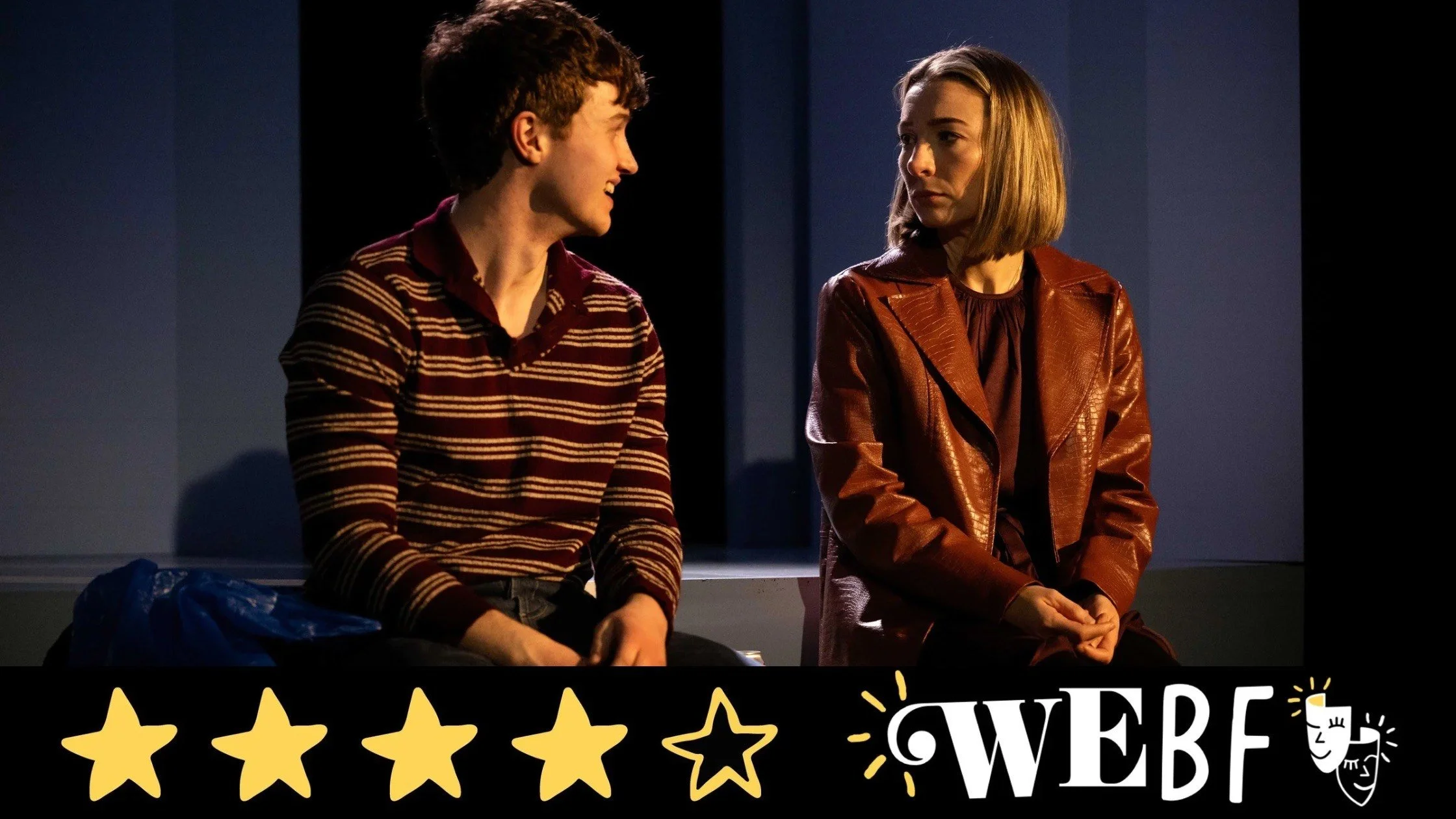Review: LITTLE BROTHER, Soho Theatre
Photo credit: Camilla Greenwell
Brigid, practical and somewhat restrained, gets a late night phone call from her brother Niall. It seems he just wants to chat, until the next day Brigid is in a Belfast hospital, talking to a nurse about self-immolation, safeguarding, and how to stop Niall from doing it again. Niall, with his newly-burnt hand, moves in with Brigid and the pair attempt to navigate a sibling relationship under the new circumstances: with all this pain and time between them.
Little Brother is a dark play: direct, desperate and backed by concerning statistics about this specific form of self-harm. What is surprising is its easy humour, charring the edges, or occasionally dousing scenes in emotional gasoline. Writer Eoin McAndrew manages the heavy subject matter with frankness and warmth, producing a piece not so much about depression or suicide, but mostly about sibling bonds, and how much you can give of yourself for the safety of those you love.
The stage features three cramped, sterile rooms stacked on top of one another: an open-faced facsimile of a home. The downstairs room is used only for Niall’s worst moments: his violent outbursts, and the space he uses to brood with his guitar. It’s often washed in red, with the well-lit room directly above serving as the hospital room and the communal space for Brigid to interact with her boyfriend, Michael. Bethany Gupwell uses light to flick the audience’s attention from one character to another, to imbue the scenes with naturalism despite the cold set, and to facilitate time jumps with the unexpected pulsing of neon light bars, boxing in the box-house.
The cast is skillfully directed by Emma Jordan, who knows when to push for feeling and when to pull back for humour. Cormac McAlinden (Niall) is a relatively new talent, and burns with tightly-wound tension. It’s cleverly mirrored in Catherine Rees’ Brigid, who plays a relatable older sister, frantic in the face of Niall’s unpredictability. Conor O’Donnell, arguably the most visibly-mad of the group, provides a hilarious jumpscare: entering the play as Brigid’s boyfriend Michael through a narrow doorway when the audience feels sure they’ve met everyone already, and Laura Dos Santos’s nurse is an early stand-out, comedy-wise.
The story has a drive, although not necessarily a destination, which is ambiguously the point. Recovery is never complete and mental illness is rarely ever cured. However, despite all that happens in its 90-minute runtime, it’s difficult to feel the impact of the events, as it never quite ramps up, and finally doesn’t quite wrap up either. It’s easy to watch, despite its subject matter. Whether it was trying to say something new, or more interested in entertaining, is up for debate.
Slowly, consistently smouldering, with flickers of bright humour.
**** Four stars
Reviewed by: Oli Burgin
Little Brother plays at London’s Soho Theatre until 22 November, with further info here.

